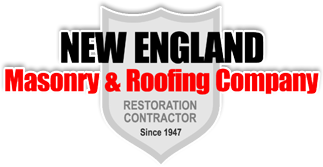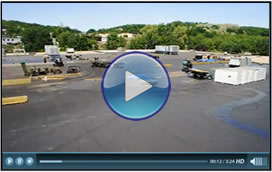Category: Roofing
What to Ask a Commercial Roofer About Their Roof Repair Solutions

When fixing your roof, it can be confusing to know exactly what to ask a commercial roofer. To ensure you get the best Connecticut commercial roofing repair solutions for your business, here are vital questions you should address.
1. What is your specialty?
It is vital to ensure that the roofer you are working with specializes in the materials used on your building. Suppose a roofer is experienced with metal roofing, for example, and your building has an asphalt shingle roof. In that case, they may be unable to provide adequate roof repair solutions for your business.
2. Have you already worked on projects comparable to this?
Finding out if the roofer has tackled similar projects in the past is crucial. A rooftop connected to multiple buildings, or one with unique structures, is much more complex than a regular flat rooftop. A roofer with experience with these roof types is the best bet to provide you with top-notch roof repair solutions.
3. Will you offer me a free quote?
Before hiring a roofer, ensure you get a free quote in writing. This quote should include materials, labor, and any other related costs. Do not work with any contractor who cannot provide a quote for the repair work.
Once you have asked these crucial questions, you know you are dealing with a reliable commercial roofer who can provide your business with the best roof repair solutions.
How Can Roofing Maintenance Influence Your Roof Insurance?
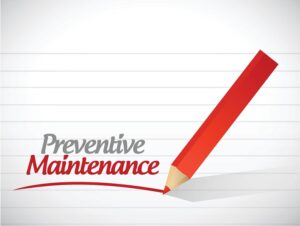
Roofing maintenance can influence your roof insurance, in several different ways. And this can be a very good method to ensure the safety and well-being of your entire family. For one thing, if you manage to keep your commercial roofing CT system in a good shape for longer periods of time, you can thus save a lot of money on costly repairs or replacements.
In case your roofing system gets damaged due to the harsh weather conditions such as storms, you need to find the exact type of insurance that your roof may need. For one thing, you need to check for any kind of damage as soon as possible, preferably after each weather event.
The main thing you should look at is if there are any signs of leaks. The areas you should check include the attic, the ceiling and the walls. There can also be signs of damages to your shingles, which can be curled, dented or cracked. The gutters may also show signs of damage, which can be incurred by hail storms or heavy rains. In this respect, storms can cause trees or large branches to fall on your roof, and this can affect the structure of your roof.
Why Should You Call A Commercial Roofer Immediately, When You Experience A Leak?
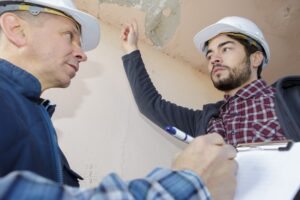
When you discover that your roof has leaks, the very first thing you need to do is call on a commercial roofer straight away, for a number of good reasons.
It would be very useful to understand the main reasons why your roof may experience leaks, because this can provide you with relevant clues regarding the exact solutions you can apply to solve your problem.
For instance, the problem may be that of insufficient or total lack of drainage. In other words, water can get accumulated on top of your roofing system. And it is this standing water that can get inside crevices or gaps, leading to the fact that there is a lot of extra pressure on the structure of your building.
We need to note the fact that the drainage system is usually included in the installation phase of a roofing system. And the most important drainage elements should consist of gutters, drains, downspouts and scuppers. All of these elements should be free of debris, in order to make sure that the drainage system is working properly and keeps your roofing system safe and sound. Calling on a team of commercial roofing CT experts can help you prolong the lifespan of your roofing system.
How Connecticut Commercial Roofing Professionals Repair Leaks
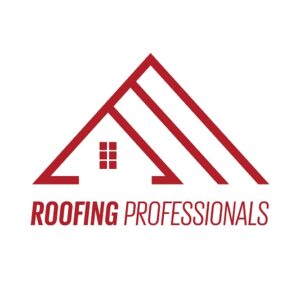
Roofs are made to withstand the weather; they have solid structures and are covered with waterproofing membranes to be functional and provide protection in the long run. The factors that make them vulnerable are the quality of materials and accessories, extreme weather phenomena, the passage of time, or faulty installation.
Connecticut commercial roofing professionals can do a waterproof test by flooding the roof with water so that, at static pressure, any installation defect or pore in the waterproofing membrane receives moisture. Signs of infiltration will be seen through water dripping or persisting moisture in the ceiling and/ or walls. If the roof is okay, the water test will reveal nothing. However, heavy rain may still reveal signs of water infiltrations, which indicates that a portion of construction or masonry facilitates the water leak through areas other than the roof.
Regardless of the nature of the infiltration, it is best to contact the roof builder or the installer of the covering materials to clarify some aspects, such as the vertical masonry where the roof cover ends, the rainwater drainage system, the roof cover layers and the order of installation, the age of the roofing materials, etc. and to make an objective and proper verification of the possible causes of infiltration.
The necessary repairs depend on the type of roof and the damage, which roofing companies like https://www.nemasonry.com can inspect and find to repair.
TPO and EPDM Roofing Maintenance Tips
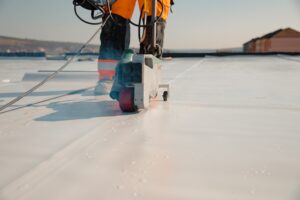
All surfaces insulated against water infiltrations have a warranty period, during which the manufacturer guarantees the safety of the products that are expected not to degrade. In addition, modern materials such as TPO and EPDM membranes for your commercial roofing CT choice are highly resistant and can provide good protection for several decades.
However, wear and tear are imminent. To protect the roof and make your initial investment as profitable as possible in the long run, it is essential to maintain it regularly.
As a building owner or manager, you must schedule annual roof checks performed by expert roofers. These will include checking the rainwater system for unclogging the drain holes in case of obturation or clogging, as well as cleaning and checking the condition of the covering membrane, especially in the area of the joints or where the membrane has been pierced for the installation of roof equipment (solar panels, air conditioning units, etc.).
Even if access to a flat roof is relatively easy, do not perform such work on your own because you may cause damage (mechanical, thermal, or chemical) to the waterproofing layer.
Avoid the circulation on the roof (unless it was designed as a circulating area), especially during the cold season, when you might be tempted to remove the snow or perform other maintenance operations; you risk damaging the membrane by the improper use of some cleaning tools, and microcracks may occur due to circulation on a surface that became rigid due to frost.
